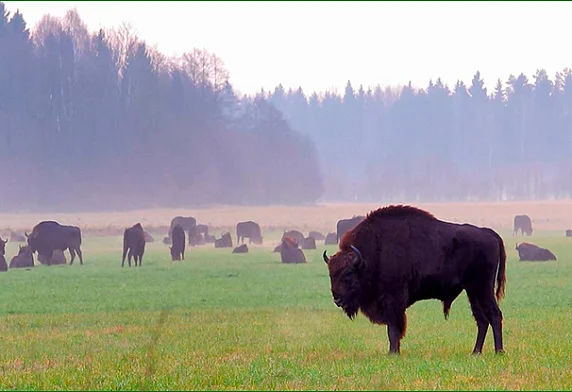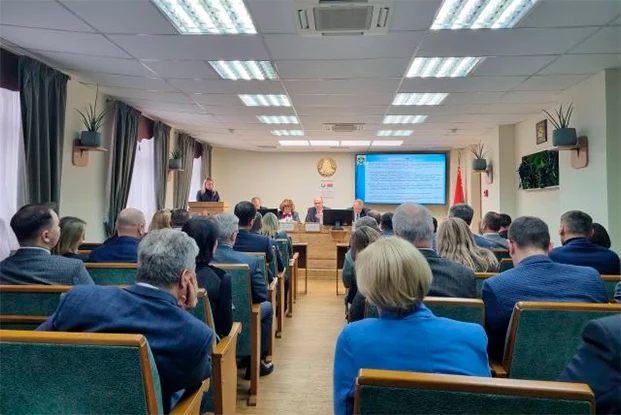
On January 25, 2022, without conducting the necessary construction and environmental assessments, the Polish side began constructing an artificial barrier (fence) made of concrete, iron and concertina barbed wire along the state border with Belarus, including on the territory of the transboundary UNESCO World Heritage Site “Belovezhskaya Pushcha”. On June 30, 2022, the construction was completed.
As a result of the construction, the groundwater level is already changing, which may lead to the death of valuable old-growth forests in the border zone, degradation of wetlands and marshy areas. Thus, the artificial territorial division of the single natural complex of Belovezhskaya Pushcha, caused by the construction of barriers on the state border, is a source of increased threat to the existence of extremely rare and unique natural complexes on the territory of the transboundary UNESCO World Heritage Site “Belovezhskaya Pushcha”.
Among the predicted negative consequences of the construction of the fence, the following can be highlighted:
- fragmentation of forest areas;
- disruption of the natural development of forest ecosystems;
- formation of natural areas with a high potential for penetration of invasive plant species;
- formation of zones with a high risk of flooding of adjacent territories;
- damage as a result of flooding and destruction of valuable old-growth broad-leaved and black alder forests;
- degradation of especially valuable plant communities;
- degradation of typical and rare biotopes;
- dismemberment of the lynx and wolf populations;
- blocking of the main migration corridors of large mammals.
Belovezhskaya Pushcha, as a single and integral natural complex, existed for over 600 years. The fence erected by Poland can only be called a monument to human recklessness.
The Ministry of Natural Resources and Environmental Protection of Belarus, even at the stage of Poland’s decision to erect a barrier, sent more than 40 appeals to international environmental structures of the UN with demands to stop the construction, which was carried out in violation of all environmental standards. The reaction was zero. With such actions, the addressees showed their true face, their attitude to the importance of environmental issues.
Only UNESCO responded to the requests of the Belarusian environmental agency for assistance, which decided to include the issue of the state of the preserved transboundary site “Belovezhskaya Pushcha” in the agenda of the 45th session of the UNESCO World Heritage Committee.
The said monitoring mission is being organised within the framework of the implementation of Decision 45COM 7B.21 adopted at the 45th session of the UNESCO World Heritage Committee (10–25 September 2023, Riyadh, Kingdom of Saudi Arabia) in order to assess the impact of the barrier erected by the Republic of Poland on the Belarusian-Polish border, which runs, among other things, through the territory of the transboundary UNESCO World Heritage site Belovezhskaya Pushcha, on the ecosystems of this site.








